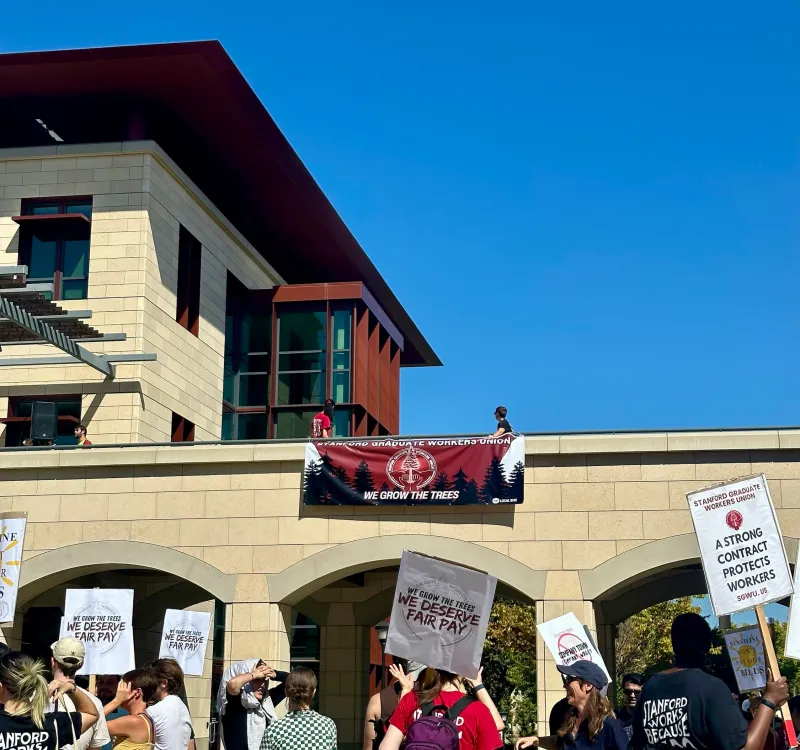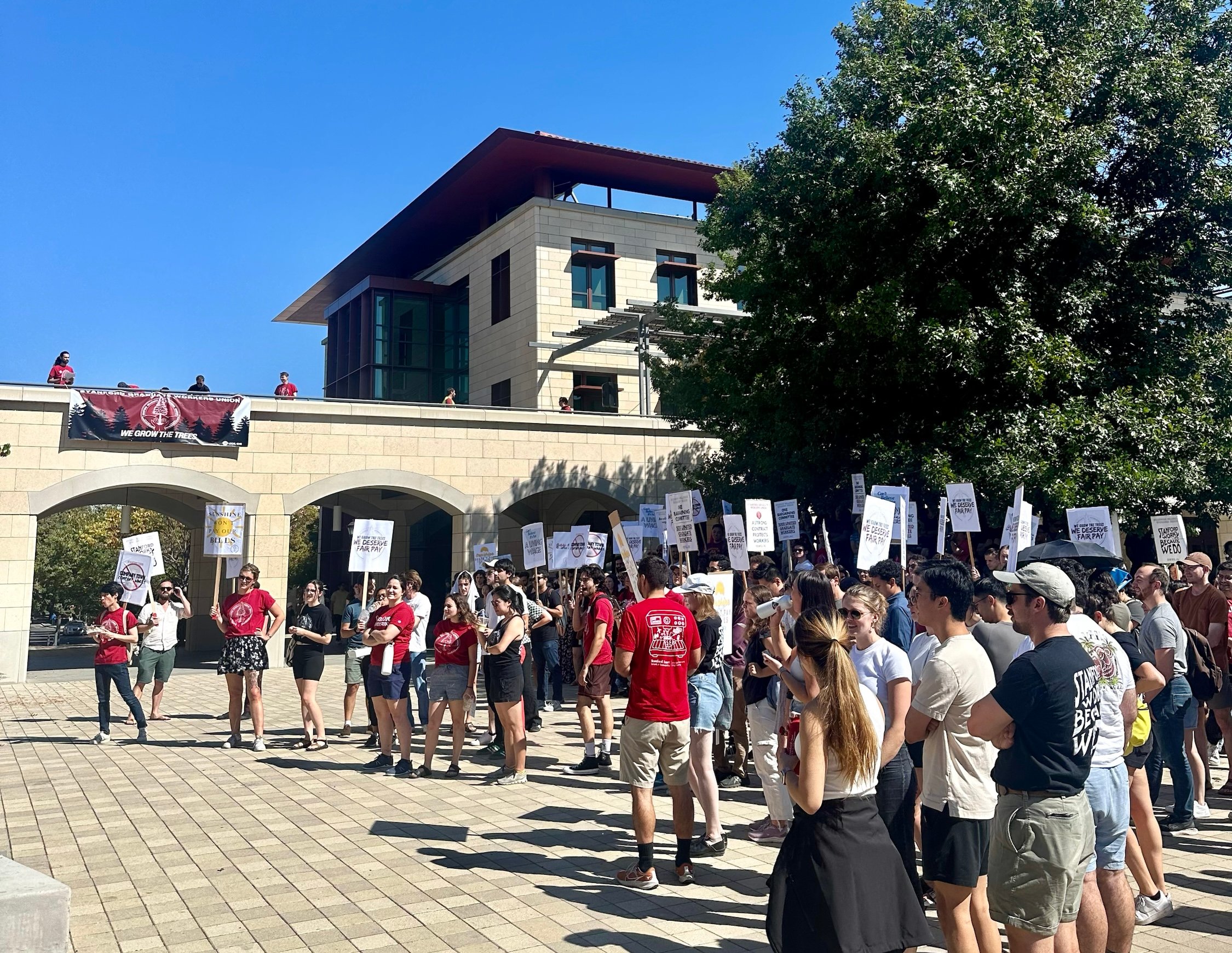Hundreds gathered in support of the Stanford Graduate Workers Union’s (SGWU) demands for better working conditions and pay at a strike pledge rally held on Wednesday, following nearly a year of contract negotiations with the University.
Over 1000 SGWU members have signed the strike pledge form since it first opened, affirming that they will cease working for the University in the event of a strike. The union would need to conduct a formal strike authorization vote in order for a strike to be called.
The rally featured five speakers who delivered remarks from a balcony in the Engineering Quad.
“We are willing to temporarily stop our work to show the administration that they need us,” said Lynde Folsom, a fourth-year Ph.D. student and graduate worker in psychology, regarding the prospect of a strike.
Many graduate students expressed dissatisfaction with working conditions and pay. A third of workers reported they are food insecure, and 80% said they have had to delay or cancel taking vacation or returning home due to work reasons, according to Folsom.
“You are here at Stanford for half a decade,” Folsom said in a speech. “How can you be expected to put your lives on pause? How much longer will you accept a barely livable wage?”
A majority of attendants carried picket signage, reflecting messages in the speeches. One sign read “If you think I won’t strike, try me,” attached with a QR code of the pledge.

In a Thursday email, the University referred The Daily to their most recent bargaining update posted the day prior. The Wednesday statement reiterated the University’s commitment to supporting graduate students and said the union’s latest proposals “are unreasonable demands.”
“While the parties continue to work hard to reach an agreement, the differences between the university’s and the union’s positions on important issues remain large,” the University wrote in the update.
The University’s proposal of a 3% wage increase is insufficient when compared to the 4.5% increase in rent and a 7.2% rise in meal plan costs for graduate students, according to SGWU.
“Stanford has substantial financial resources at its disposal and has refused to acknowledge the realities of what it costs to live and work here,” Fletcher Chapin, a fourth-year Ph.D. candidate in civil and environmental engineering and SGWU Bargaining Committee member, wrote on behalf of the committee in an email to The Daily. “The union is bargaining for wages and benefits that would allow all graduate students, regardless of personal and financial background, to do their work without the stress and hardship many have faced over the past decade due to the high cost of living.”
Since SGWU initiated negotiations with the University on Nov. 2, 2023, with 96% of their members approving their language contract proposals, the union said they have had several “wins” that were detailed in signed tentative agreements. Throughout negotiations, the SGWU bargaining team has advocated for higher wages to account for an increased cost of living, as well as other demands listed in their economic platform.
Richard Patrone, lead negotiator of the Service Employees National Union (SEIU) Local 2007, which represents Stanford service workers, was one of the speakers at the event. He reaffirmed SEIU’s support for SGWU.
“The problem with the University is that they are cheap,” Patrone said. “We heard over and over again that the pie isn’t big enough. We kept telling them in every negotiation to find a bigger piece of the pie. You have the money.”
The union and the University have a bargaining date scheduled for Oct. 9, according to the University’s bargaining update.
“If or when we strike depends on whether or not Stanford is willing to bargain for a fair contract that fully addresses the needs of its graduate workers,” Chapin wrote.
If a majority of workers sign a strike pledge and the University and the union are unable to reach an agreement, the union will proceed with a Strike Authorization Vote (SAV). According to the SGWU’s strike FAQ, a majority vote would enable the union to initiate a strike if a bargaining agreement is not reached.
“When discrimination and harassment happens, we want a fair, timely process to resolve these issues. We want protection,” said Gabi Keane, a second-year Ph.D. student in English.
